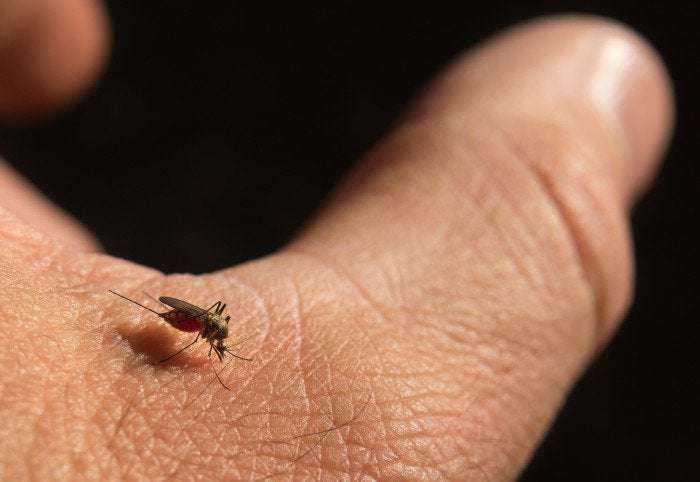Altering a mosquito’s gut genes to make them spread antimalarial genes to the next generation of their species shows promise for curbing malaria.
This is the finding of a preliminary study by researchers from Imperial College London and published today in eLife.
To finally eradicate malaria, we need to explore many new approaches, and this could be one of them. Professor George Christophides
Mosquitoes are increasingly becoming resistant to pesticides, and the parasite that causes malaria is also becoming increasingly resistant to antimalarial drugs.
This has created an urgent need for new ways to fight the disease, which in 2019 caused an estimated 229 million cases and 409,000 deaths, most of which were young children in sub-Saharan Africa.
Gene drives are currently being tested in labs as a new approach. They work by creating genetically modified mosquitoes that, when released into the environment, would spread genes that either reduce mosquito populations in a particular geographical area or make the insects less likely to spread the malaria parasite.
Malaria is caused by the parasite Plasmodium, which certain species of mosquito carry in their guts. The team genetically modified Anopheles gambiae mosquitoes so that after they have taken a blood meal, they express small antimicrobial molecules that target and impair the development of the Plasmodium parasite.
They initially inserted the gene along with a fluorescent marker to help them track it in three different spots in the DNA, and then later removed the marker, leaving only a minor genetic modification behind.
Next, the team bred the mosquitoes to see if they were able to successfully reproduce and remain healthy. They also tested how well the malaria parasite developed in the mosquitoes’ guts. Their experiments provide preliminary evidence that this approach to genetic modifications could create successful gene drives.
Senior researcher Professor George Christophides, from the Department of Life Sciences at Imperial, said: “To finally eradicate malaria, we need to explore many new approaches, and this could be one of them. Reducing the ability of mosquitoes to pass on the parasite responsible for the disease could have a significant impact.
"We would of course need to rigorously test the safety and effectiveness of the technique before releasing any genetically modified mosquitoes into an area in the wild.”
The team’s modification essentially ‘hijacks’ a functional gene in the mosquito to produce the antimalarial molecules. While this modification can be passed on to the mosquito’s offspring, at present it would only be passed on to some offspring.
The researchers say this means their approach simplifies the testing of the antimalarial effect using these mosquitoes in the field, as the genetic change would only be passed on to a small proportion of mosquitoes in a local population in any preliminary tests.
A full ‘gene drive’ would ensure that the modification would be inherited by all offspring. This would ultimately require the addition of a specific component called Cas9 once safety and efficacy had been established.
First author Astrid Hoermann, from the Department of Life Sciences at Imperial, said: “These genetic modifications are passive, and could be tested in the field and undergo a stringent regulatory process to ensure they are safe and effective in blocking the parasite without raising concerns of accidental spread in the environment.”
Senior author Dr Nikolai Windbichler, from the Department of Life Sciences at Imperial, added: “When we think they are effective and safe, and we thus want them to start behaving like a real gene drive we just have to combine them with one that is already driving on its own using the Cas9 component.
“Once we do this, they turn into gene drives themselves without the need for any further changes. Our approach thus brings gene drives one step closer to being tested in the field as a malaria elimination strategy.”
The research is funded by the Bill & Melinda Gates Foundation.
‘Converting endogenous genes of the malaria mosquito into simple non-autonomous gene drives for population replacement’ by Astrid Hoermann, Sofia Tapanelli, Paolo Capriotti, Giuseppe Del Corsano, Ellen K. G. Masters, Tibebu Habtewold, George K. Christophides and Nikolai Windbichler, is published in eLife.

smilelikeachow on April 15th, 2021 at 13:10 UTC »
How about altering their gut genes to make them explode instead?
bomberesque1 on April 15th, 2021 at 12:09 UTC »
So this is the scenario where we let them live instead of wiping them out? My day is ruined
Ravenna on April 15th, 2021 at 11:52 UTC »
can anyone also make their bites not itchy?